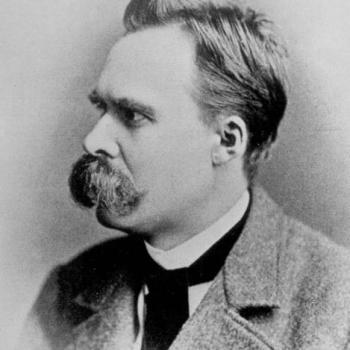Washington Post columnist Ezra Klein says that “How government is run, more than what exactly it does, seems set to be the main battleground of American politics in coming years.” He then cites articles from the New America Foundation that say the government’s approach is to build a kludge (“a clumsy, inelegant, difficult to extend, hard to maintain yet effective and quick solution to a problem”) and to function like “a giant coupon machine.” Explains Klein: “Think clunky Obamacare versus streamlined single-payer health care, or government’s tendency to deliver benefits via the tax code, through deductions, credits and exclusions, rather than by direct payments.”
Do you see where this is going? But is there a valid point here?
From Ezra Klein’s After ‘the end of big government liberalism’:
If the basic services provided by the federal government are unlikely to change significantly in coming years, their delivery and design promise to be more contested turfs. The Republican dream of transitioning Medicare to a “premium support” voucher system is one example of the new battleground. The Democratic desire to add a public option to Obamacare is another.
Some of the best thinking on these issues is being done at Washington’s New America Foundation, which has produced three recent papers that deserve attention. In “Kludgeocracy: The American Way of Policy,” Steven Teles, a political scientist at Johns Hopkins University, takes aim at the political system’s tendency to address problems with “the most gerry-rigged, opaque and complicated response.” Think clunky Obamacare versus streamlined single-payer health care, or government’s tendency to deliver benefits via the tax code, through deductions, credits and exclusions, rather than by direct payments.
Our drift toward kludgeocracy has many causes, Teles argues. They range from the irresolvable tension between the public’s desire for a small, inexpensive government and generous, expansive public services, to the realization by special interests that they can commandeer more of the public purse through programs that are too opaque for the public to notice and too complex for even members of Congress to understand. The result is an inefficient state that citizens find unaccountable, expensive, untrustworthy and impervious to reform efforts.
The paper “No Discount: Comparing the Public Option to the Coupon Welfare State,” by Roosevelt Institute fellow Mike Konczal, is a useful companion to Teles’ tale of kludgeocracy. While Teles surveys a broad trend in governance, Konczal drills deep into a single policy dilemma that we confront repeatedly: Whether to provision public services directly, through government-run programs, or to use government as “a giant coupon machine, whose primary responsibility is passing out coupons to discount and subsidize private education, health-care, old-age pensions and a wide variety of other primary goods.”
In recent years, the “coupon machine” theory of American governance — exemplified by vouchers and tax subsidies — has been ascendant. That’s how most of Obamacare works. It’s also the foundation of Republican efforts to reform Medicare and education.
As Konczal argues, “The advantages associated with vouchers are ones of choice, efficiency, competition, budget control and incentive management.” But there are disadvantages, too. For instance, because a privatized welfare state is more opaque and complex than a public one, it creates “new coalitions of business interests, providers, middlemen” who profit from it. The result is not only less democratic control and accountability, but also less efficiency. Understanding when to choose a direct public provision and when to opt for coupons is a crucial task. Konczal’s paper provides an excellent basis for devising a general theory.
















